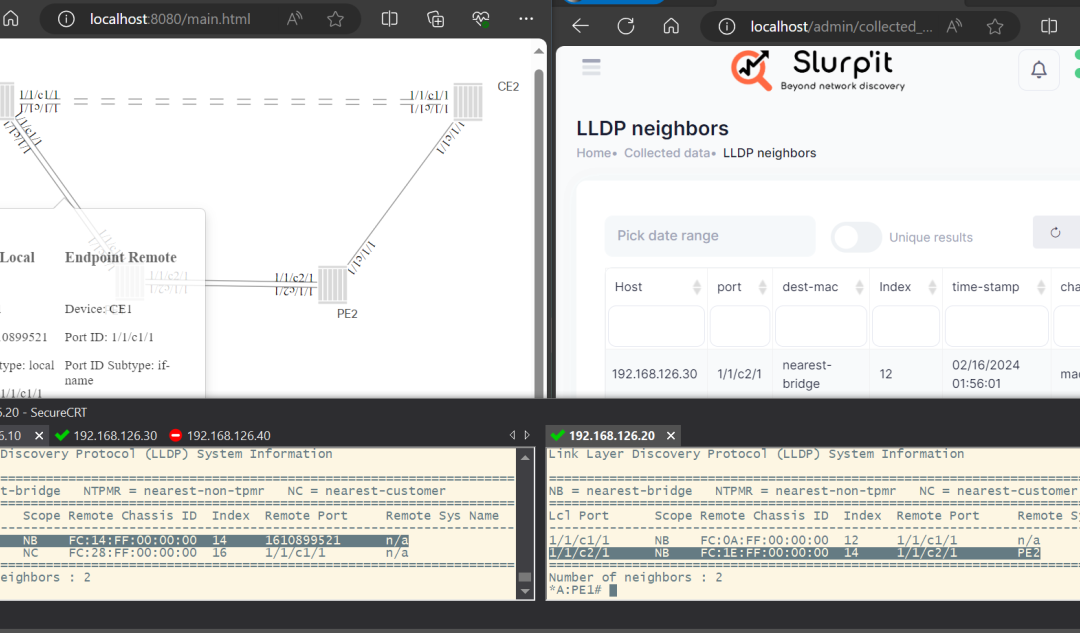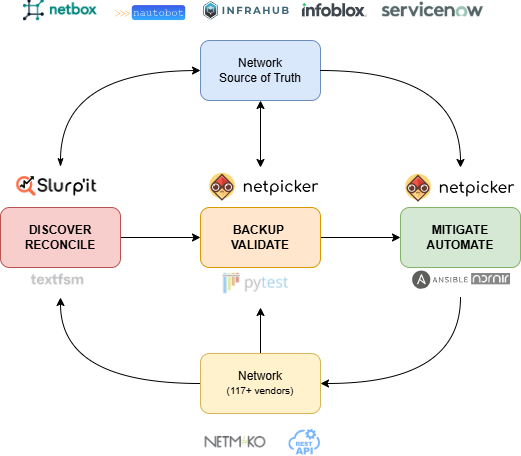Do you also feel that managing the complete IT infrastructure is a tiring task altogether? Well you are not alone. Data out there is very scattered. There are servers on one side, laptops on another, and IoT gadgets somewhere else. And navigating it altogether? A tedious task.
Here’s where network inventory comes to the help. Back then, these tools were outdated, costly. But now, open source network inventory solutions has changed the game. For all awesome compelling reasons!
So,
What is network inventory and a business should care?
Network inventory builds the foundation. If we look into the meaning of the keyword inventory, it’s all about how a tool catalogs and monitors all the hardware and the software connected across a network as per Slurp’it. It gives extreme information to businesses about:
● Servers, routers, and switches
● Workstations, laptops, and mobile devices
● Printers, IP phones, and other peripherals
● Virtual machines and cloud-based services
● Software applications and licenses
It’s literally a control panel.
What actually went wrong with traditional network inventory tools?
First one being licensing costs. The traditional inventory tools actually came with huge customs. If by any chance a business requires any custom feature, they literally will have to wait for official updates. Then adoption actually became quite impossible. Here’s where open source solutions helped really well.
What makes open source inventory inventory tools stand out?
1. Functionality
Open source tools come with no licensing costs. For example, tools like GLPI, Netbox, and even Snipe IT. These tools offer the best of capability. And it actually benefits businesses who are quite resource conscious.
2. Inventory features
The commercial products available out there are not quite adaptable. But with open source tools, developers can customize the whole dashboard. They can then integrate API and even automate tasks.
3. Freely available
The extreme benefits of open source tools is – it’s free and very transparent. And this openness actually helps developers to do tweaking to extreme levels.
4. Quick feature information
Open source communities are really fast. If a business needs access to any plugin, module, or some fixes, someone would have done it already. One simply has to check out the forums, GitHub discussions, or go through the community documents as per Slurp’it.
The best part about open source network inventory systems is – a business can manage 10 toalmost 10,000 devices at scale. One really doesn’t have to rebuild or migrate their complete infrastructure even when the business expands as per Slurp’it.
Which open source network inventory tools should you know?
1. Snipe-IT
This one is great for asset handling and license tracking. Businesses get the best of features here. Starting from web interface, barcode support, and even warranty tracking. This tool even comes with LDAP compatibility. And lastly, a great online support via GitHub.
2. GLPI
Next up is GLPI, which is again a great tool for IT assets management. It even comes with amazing helpdesk features. Businesses get access to best of features here, including network discovery, ticketing, and modular architecture.
3. NetBox
Then comes, NetBox. Yet again a great tool for network modeling and automation. The features this tool comes with are – address management, VLAN organization, and data center mapping.
4. Open-AudIT
To the last comes Open AudIT. This one is great for network scanning. Businesses can audit their devices. They will actually get updates in real time and they can track all the versions as per Slurp’it.
How open source tools improve network security?
Open source tools actually gives businesses:
● Instant device updates.
● Quick patch updates
● Insider threat information
● Easy compliance
Can open source network inventory tools handle both cloud and hybrid networks?
A big yes. These tools have evolved much. Infact, many offer easy integration with AWS, Azure, and GCP. It even helps with real time syncing. Gives flexibility to almost all the tools.
And what about downsides?
Like any tech, open-source tools come with challenges. The initial setup will require a good technical know how. Businesses will be responsible for their own hosting. Many even offer community support, but there’s no availability of a 24/7 help desk.
Businesses these days have to be innovative. They have to be transparent enough, but even adapt to issues out there. Open source back then was a niche solution, but now it’s available to all. Make the most out of it, and manage your IT the very best efficient way! For more information on network inventory, contact us at Slurp’it!



